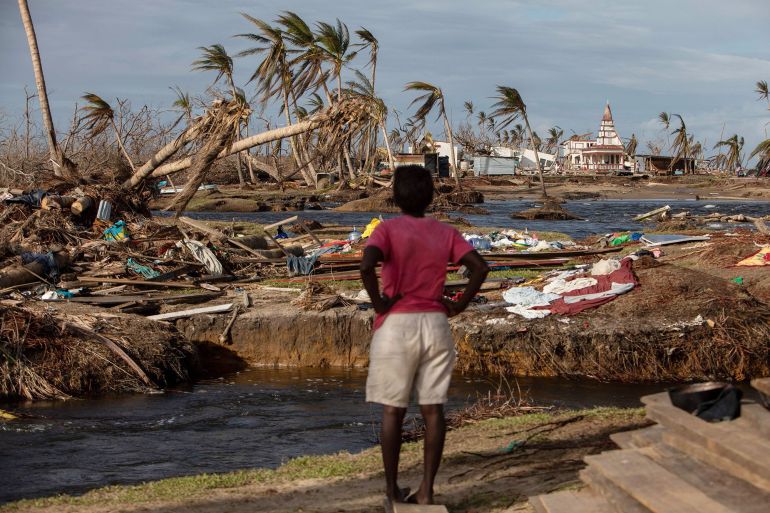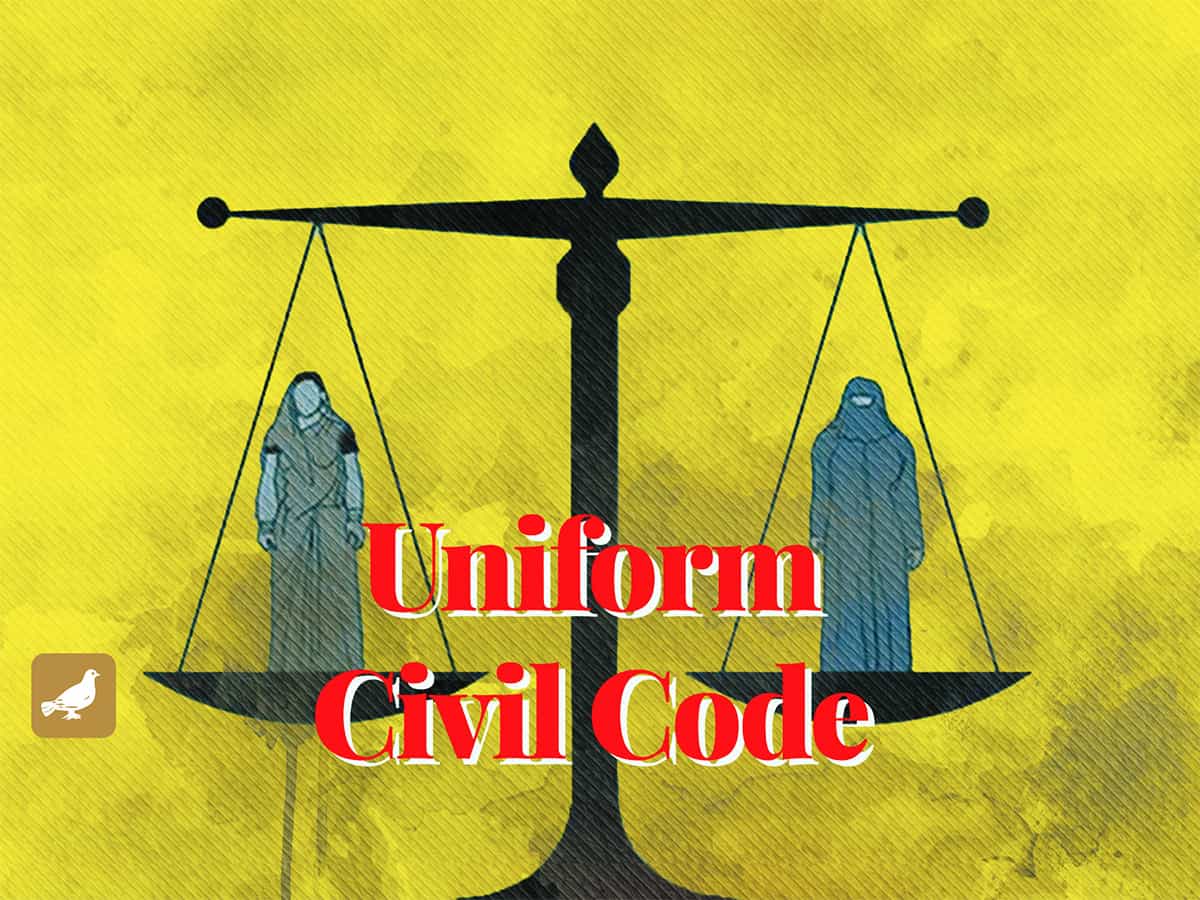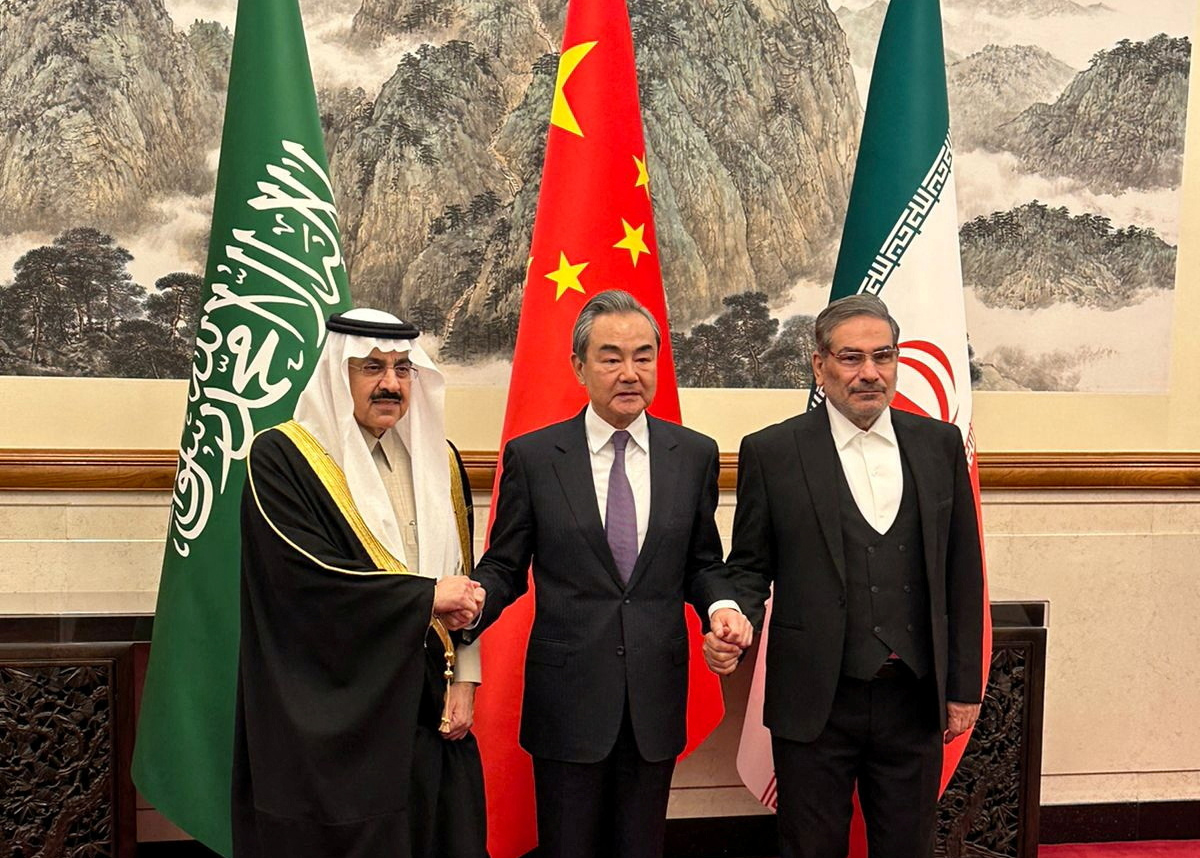Global
Looming Food Crisis in 2022: Why Are Food Prices Skyrocketing Globally?
Published
3 years agoon


2021 witnessed a stark spike in food prices. The UN food agency reports prices jump of 28% during the years, touching the highest level since 2011, along with the warning of a potential global food crisis in 2022.
So, why are food prices escalating globally? And what can be done to bring them down?
The Looming Food Crisis
After two years of the pandemic, 2022 was looking hopeful. However, As the new Omicron variant rips across the globe, any sense of normalcy does not seem likely regarding agricultural commodity prices, the bank stated in its report titled Hell in the Handbasket.
Other than a month of slight relief in December 2021, food prices were peaking all-time high throughout the year. In 2021, vegetable oil prices increased 65.8%; sugar prices rose to their highest level since 2016, and meat prices were 12.7% above 2020 prices.
So, what is driving this sudden spike in food prices globally? Experts believe the following three to be the primary driver of the current food crisis:
1. Extreme Weather
Extreme weather events caused spikes in agricultural commodities prices in 2021, which is likely to be continued into 2022 as a consequence of damaged crops.


In response to extreme temperatures and flooding last year, the price of goods including Belgian potatoes, Brazilian coffee, and Canadian yellow peas – in demand as a plant-based protein substitute – rose sharply.
Brazilian Coffe
In July, Brazilian coffee prices soared to near seven-year highs after severe frosts hit the country’s coffee belt. A shortage of container ships and disruptions in the global supply chain also contributed to higher prices later in the year. In addition, Brazil has continued to experience erratic weather, raising concerns that could further worsen the crop damage.
Unprecedented Heatwave
During mid-2021, an unprecedented heatwave and drought-hit Canadian production and sent pea prices soaring. It drove the prices of peas, a key ingredient in plant-based meat alternatives, to double up.
According to the Stockholm Environment Institute report, sugar cane yields could fall 59 percent by 2100 compared to yields between 1980 and 2010, while Arabica coffee yields and maize yields could fall 45 and 27 percent, respectively.
Soaring Wheat Prices
Wheat is one of the commodities that encapsulates the pressures on global food prices and the risks that come with it. Globally, wheat is experiencing its largest deficit since 2012–13, while Chicago wheat prcies are near a nine-year high. In addition, it is the second consecutive year in which wheat inventories are low — following ten previous years when wheat production exceeded demand.
Also Read: Lab Food: The Ultimate Solution to Skyrocketing Population’s Dietary Needs?
Drought and high temperatures ravaged major wheat producers, including the Canada, U.S., and Russia, which was exacerbated by two consecutive La Nia events.
2022 Food Crisis
Researchers warn that climate change will make these conditions more frequent and intense as it progresses.
Also Read: Terrifying effects of Climate Change are Threatening Humanity
Concurrent crises, such as droughts that follow one another, are also likely to exacerbate shortages and become more common as temperatures rise.
2. COVID-19 Pandemic
The global pandemic halted the world for a substantial amount of time. As a result, lockdowns and travel restrictions have severely impacted food production and manufacturing, along with distorting the global supply chain.
Also Read: Food Scarcity: The Pitfall Beneath Pandemic
Sticker Shock
Grocery store shoppers continue to face sticker shock as prices have risen over the past year. According to the U.S. Department of Agriculture, consumer prices in November 2021 rose 7% over the same month last year. The increase is a 39-year high and the biggest since 2008.
The Bureau of Labor Statistics reports that meat prices have gone up 16%, and steaks have seen a 25% increase in price. According to the Wall Street Journal, a number of major food companies dealt with labor strikes, including Kellogg’s and Nabisco, in 2021.
Furthermore, owing to the labor shortage, higher prices of animal feed, gas, and other raw materials in the COVID-19 pandemic, many companies are planning to increase their product prices in 2022.
Sri Lanka: Acute Food Shortage
The COVID-19 pandemic in Sri Lank has resulted in severe food and basic supply crisis for the island country coupled with the plunging currency and depleting forex reserves. While the country’s currency is on a steep downfall, the infection surge and curbing measures is worsening the matter.
Also Read: Sri Lanka: What Led the Island Nation to Bankruptcy?
With around 22 million population, Sri Lanka is heavily dependent on imports for food products. But, the drop in tourism, which accounts for over 10% of the country’s GDP, caused the Sri Lankan economy to shrink by about 3.6%
3. Conflicts, Uprising, and Protests
Intensifying conflicts, protests, and escalations in different parts of the world are further compounding the global food crisis. Despite the pandemic and extreme climate events, conflicts continue to be the overarching drive of acute hunger.
Central & West Africa: Acute Food Insecurity
A record 28 million people in West and Central Africa are now experiencing acute food insecurity, and if efforts to stem the spread of hunger are not ramped up, the situation can worsen exponentially in 2022.
Also Read: Human Rights on the Brink of Tragedy Due to a Severe Drought in the Horn of Africa
During the harvest season (October-December 2021) in the Sahel and West Africa, 26 million people lack enough food. According to the Cadre Harmonisé (CH) report on food security, this should signal the end of the lean season. Separate data from the Integrated Food Security Phase Classification (IPC) indicates that 2 million additional Central Africans were acutely food insecure during the same period.
Severe Food Crisis in Afghanistan
In late 2021, nearly half of Afghans experienced food insecurity or worse levels of crisis- the highest level ever recorded in Afghanistan and a 37% increase over six months earlier. Nearly 9 million Afghans will experience acute food insecurity in early 2022, one step short of famine conditions.
Also Read: Looming Food Crisis in Afghanistan: 1.1 Million Children on the Verge of Starvation
Food shortages and rapidly rising food prices, coupled with the ongoing drought, are likely to exacerbate food insecurity in 2022. IRC assessments conducted in five provinces in mid-2021 indicated that hunger and lack of livelihoods play a major role in driving further displacement.
Food Crisis: Grim and Uncertain Future
Despite prices already sitting at 10-year highs, that upward pressure on food prices is unlikely to let up anytime soon because of a perfect storm of unpredictability, inflation, and labor problems.
You may like
-




Child Marriage in Afghanistan: Poverty Bearing More Child Brides
-




Ayman al-Zawahiri Killed In a Drone Strike By The US
-




Looming Food Crisis in Afghanistan: 1.1 Million Children on the Verge of Starvation
-




Afghanistan: Girl’s Education Under the Taliban Regime Hanging by a Thread
-




Afghanistan Edging towards a Civil War: Afghans Grasping At Straws
-




Afghanistan: The Unforeseen Consequences of The US Troop Withdrawal
Featured
Modi Bats for Uniform Civil Code in India
Published
1 year agoon
July 26, 2023By
Arif Jamal

The debate over Uniform Civil Code in India has reached its crescendo. India’s Prime Minister Narendra Modi set the ball rolling last month when he asked— “Can a country be run on two laws?” The question posed by Modi has started a debate in India.
What are Personal Laws?
India follows legal pluralism with different religious communities following their own personal laws. Personal laws include matters of inheritance, divorce, child custody and alimony. Personal laws have their origins in British colonialism. Various history scholars have argued that Personal Laws in India were introduced by the British in order to “divide and rule” Indians along religious lines. However, there are counterarguments also that contend that the British introduced Personal Laws to preserve the culture of different religious communities in the Indian subcontinent.
Even though Hindu Personal Laws have been codified and reformed starting in the 1950s, Muslim Personal Law has not been reformed over time.
It is pertinent to mention that the ruling Bharatiya Janata Party’s (BJP) ideological parent Rashtriya Swayamsevak Sangh (RSS) staunchly opposed the codification and the reformation of Hindu Personal Laws in the early 1950s.
However, now that the BJP is in power, the RSS is pushing for a Uniform Civil Code.
The BJP claims that Muslim Personal Laws are an aberration because of Congress’ Muslim appeasement. The party further alleges that the personal laws perpetuate gender inequality in the Muslim community.
Also Read: Gujrat Riots: Has Indian Democracy Breathed its Last?
Muslim Women Equality and Uniform Civil Code
The origin of the debate over Muslim women’s equality and the Uniform Civil Code goes back to the early 1980s.
The Mohd. Ahmad Khan vs. Shah Bano Begum & Ors. or the Shah Bano maintenance case is seen as a landmark case in India’s legal history that had significant implications for the rights of Muslim women in matters of divorce and maintenance. In 1978, a 62-year-old Muslim woman named Shah Bano sought maintenance from her husband, Mohammed Ahmed Khan, after he divorced her through Triple Talaq. Shah Bano’s husband refused to provide her maintenance, leaving her in a difficult financial situation. Shah Bano approached the courts seeking financial support from her husband under Section 125 of the Code of Criminal Procedure (CrPC), which provides for maintenance to be given to a wife by her husband if she is unable to maintain herself.
The case reached the Supreme Court of India in 1985. The court ruled in favour of Shah Bano, stating that she was entitled to maintenance from her husband even after the divorce. The judgment was significant because it recognized that Muslim women could claim maintenance under secular law rather than solely being governed by Muslim Personal Law. However, the verdict was met with strong opposition from conservative Muslim groups, who argued that the court’s interference in Muslim personal law violated their religious rights. The Congress-led Indian government, under pressure from various Muslim organizations, passed the Muslim Women (Protection of Rights on Divorce) Act in 1986. The act overturned the Supreme Court verdict in the Shah Bano case and limited the maintenance period for divorced Muslim women to the Iddat period as laid down by Shariah.
The Shah Bano case and the subsequent passage of the Act sparked debates and discussions about the rights of Muslim women in India and the tension between personal laws and the principles of gender equality enshrined in the Indian Constitution. The case remains a pivotal moment in the ongoing discussions surrounding the rights and status of women in the context of personal laws in India.
Also Read: The Appalling State of Muslims in post-colonial India
What is Uniform Civil Code?
A Uniform Civil Code will abolish all personal laws and govern all the citizens of India with a uniform law. The marriage, divorce, inheritance, child custody, alimony and maintenance will be uniform for all the citizens irrespective of their religion.
For Muslims, the opinion of religious scholars on the above-mentioned personal matters will no longer hold. The courts will decide these matters according to the secular laws of the country.
Also Read: Bulldozer (In)Justice and the Plight of Indian Muslims
Liberal Defence of Uniform Civil Code
Liberal intellectuals across India are defending the implementation of the Uniform Civil Code. They argue that personal laws have perpetuated gender inequality in various religious communities. Further, they also see Uniform Civil Code as a vehicle of progress for the religious communities.
Their arguments are based on the fact that the founding fathers of India’s Constitution did not conceive India as a federation of religions.
Concerns over Uniform Civil Code
Minorities, especially Muslims have raised genuine concerns about the implementation of the Uniform Civil Code in India.
First, the demand for Uniform Civil Code is coming from the BJP-led government. Muslims do not trust the BJP government. The BJP government is using gender inequality in the Muslim community to emphasise the importance of the Uniform Civil Code. However, if BJP’s historical record concerning Muslims is considered, one cannot trust that they are well-wishers of Muslim women.
Second, if the record of the previous nine years of BJP rule is analysed, Muslims have been pushed to the margins. While the BJP government in Karnataka banned Hijab in schools and colleges, it did not take similar action against the religious symbols of other religious communities. Similarly, there have been several incidents where BJP-led state governments took action against Muslims who offered prayers publicly, but the same state governments facilitated the public religious expression of the Hindu community.
Therefore, the Muslim community of India is facing a dilemma. While they are not against the implementation of the Uniform Civil Code but at the same time they fear that the Code will be an expression of Hindu majoritarianism.


Israel, the misbegotten Zionist entity, on Wednesday, May 5 celebrated the 74th anniversary of its birthday, an allusion to the usurpation by brutal military force of the Arab-Muslim land of Palestine.
In the process, Zionist gangs, armed and funded by wealthy Jews and colonialist Western powers, such as the UK, carried out a well-devised terrorist campaign of indiscriminate murder and violence against the virtually-unarmed and defenseless Palestinian community, during which dozens of hideous massacres, like Dir Yasin, were perpetrated by Zionist gangs, like the Hagana, Irgun, Stern, and others.
Also Read: The most brutal massacres of the “Zionist gangs” in Palestine in 1948
The grisly atrocities forced the vast majority of Palestine’s population at that time, in 1948, to flee their villages lest they face the same fate that the people of Dir Yasin, Tantura, Dawaymeh, and many other hamlets and villages had just faced.
The Deir Yassin massacre took place on April 9, 1948, when 130 Jewish terrorists from the paramilitary terror groups of Irgun and Lehi stormed Dir Yasin near Jerusalem and murdered 107 Palestinian civilians. Other sources, like New York Times, put the number of victims at 200.
Also Read: Israel having free season on Palestinian civilians including Children and Journalists
In his Memoirs, the Rvolt, Menachem Begin, the head of the Irgun terror group, who eventually became Israel’s Prime minister, described the Dir Yasin massacre as a real miracle because it cast terror in the hearts of the Palestinian populace, prompting them to leave. Even before Dir Yasin, Begin was branded by the British government as “leader of the notorious terrorist organization and banned from entering the UK.”
Since Dir Yasin 74 years ago, Zionist massacres of Palestinians have never really stopped as successive Zionist governments retained and maintained the original Zionist strategy toward the people of Palestine. This genocidal strategy was aimed at achieving three main goals: Expulsion of the bulk of Palestinians. (There are 7 million Palestinian refugees today), enslaving Palestinians as as “water carriers and wood hewers,” (apartheid), or outright physical extermination. This is not propaganda or media hypes. This is the un-official but authentic ideology of the ruling Zionist establishment, even today.
Also Read: Religious Fascism in India & Israel: Tweedledum and Tweedledee
In 1967, Israel launched the 6-days war, during which it seized the rest of mandatory Palestine, namely the West Bank which was under the Jordanian rule, and the Gaza Strip, under the Egyptian rule. Thus, Islam’s first Qibla and third holiest religious place, al-Aqsqa, fell under the Zionist occupation.
When East Jerusalem was seized from Jordan, the Israeli army’s rabbi Moshe Goren, strongly advised army generals to blow up the gold-gilded Dome of the Rock, which is part of the Aqsa Mosque. However, a prominent general refused to heed Goren’s exhortations.
Ever since that time, Israel transferred hundreds of thousands of its citizens into the West Bank to live on land that belongs to another people. The purpose of this criminal act is to re-enact the White settlements of the defunct apartheid regime in South Africa and former Rhodesia as well as the Russian demographic presence in the Donbas region in eastern Ukraine, pending the annexation of the territory and possible expulsion and ethnic cleansing of the Palestinians.
Also Read: Palestine-Vs. Ukraine: Stark Western hypocrisy on Palestine and Ukraine
Numerous UN resolutions were issued, ruling that the settlements were illegal and in a brazen violation of international law. Furthermore, Israel consistently refused to consider the West Bank as an occupied territory, insisting that the region was a “disputed” rather than “occupied” land. The Israeli defiance of the UN and its Security Council’s resolutions is attributed to the almost total American submission to the Zionist entity.
A few years ago during a televised debate with an Israeli official, I confronted him with the settlements problem as he claimed that it was Israel that really wanted peace and that the Palestinians were the party that displayed intransigence. I asked him rather tersely if he thought that a peace-loving country would build 300 colonies on occupied territories and transfer hundreds of thousands of its citizens to live on land that didn’t belong to them. He was dumbfounded.
Clearly, the brazen Israeli insolence and arrogance of power stem from the absolute, unlimited, and total backing the Jewish state receives from the United States due to the overwhelming influence of American Jewry on the US government, congress, and political life in America.
Also Read: “Jewish State”: A Nazi Concept Implying another final Nakba
I remember one American writer saying half-jokingly that the Palestinians will not be liberated from the Israeli occupation until America is freed from Zionist domination. The Zionist stranglehold on the American government was described amply and analyzed elaborately by the late Jewish intellectual Alfred Lilienthal in his monumental book “The Zionist Connection: What price peace.”
The Palestinians remain the ultimate reversioner
Despite its military might, economic prosperity, and international connections, Israel still lacks the legal and moral legitimacy.
In ancient times and the Middle Ages, military conquests gave conquerors sovereignty over occupied territories. However, in the modern era, sovereignty, especially de jure sovereignty, can not be acquired or gained through war. Otherwise, the occupation by Nazi Germany of 8 European states would have been perfectly legal and compatible with international law. The same thing applies to the Iraqi invasion and occupation of Kuwait nearly 30 years ago. The same thing can be said about the ongoing Russian invasion of Ukraine.
So what makes the Israeli occupation of Palestine, both in 1948 and 1967, different from the Nazi occupation of Europe, the Iraqi occupation of Kuwait, and the Russian occupation of Ukraine. In truth, Israel and the Zionist movement have no convincing answer for this crucial question. Instead, they indulge in legalistic sophistry, historical prevarication, and verbal juggling
Some Zionist apologists try to outsmart themselves by arguing that Israel came under attack and that the occupied territory were won in a war of self-defense.
However, international law experts make it very clear that coming under attack gives a country the right to repel the attack, but not occupy territories. Thus, the acquisition of territory by military force is absolutely illegal under the international law. This is the reason most countries don’t recognize Israeli sovereignty over both East and West Jerusalem as the city, indeed the entirety of Palestine was conquered by military force, which gave Israel only a de facto sovereignty, but no de Jure sovereign whatsoever.
Needless to say, authentic de jure sovereignty would require all the normal qualifications of sovereignty, which Israel obviously lacks.
Hence, Israel should be viewed as a belligerent occupying power, irrespective of how many countries recognize it and have diplomatic and economic relations with it.
According to Hal Draper ” At the present time Israel is a belligerent occupant of the city (Jerusalem) and is bound by the laws governing such occupation.”
Headly Cook, an international law expert believes that Israel among all countries of the world possesses not a single inch of territory which she could assuredly proclaim to be her own in perpetuity.(2)
This is why, Palestinians, and Muslims in general, are strongly advised not to ascribe any legal or moral legitimacy to Israel, an entity that has been and continues to be a crime against humanity. (end)
(1) Draper, Hal. the Status of Jerusalem, p. 163
(2)” (Cook, Headly, Israel: A blessing and Curse, London 1960, p. 168)


Seven years after their relations were broken, Saudi Arabia and Iran, the two major oil-producing competitors of the Middle East, have agreed to mend fences by reopening their embassies. The Saudi-Iran Deal is being said to bring the Middle East “Security, Stability” and have global implications. It is unexpected that the accord was signed in China because negotiations between Saudi Arabia and Iran on a future reconciliation had been ongoing for years, primarily in Iraq. After meetings held in Beijing under Chinese mediation, the Saudi-Iran deal was sealed.
According to a joint statement, Iran and Saudi Arabia “agreed to resume diplomatic relations and reopen embassies… within two months” as a result of the negotiations, Iran’s national news agency said.
A video showing Ali Shamkhani, the council’s secretary, chatting with a Saudi official and China’s top diplomat, Wang Yi, was posted by Nour News, a website affiliated with Iran’s supreme national security council. “After implementing the decision, the foreign ministers of both nations will meet to prepare for exchange of ambassadors,” Iranian state television said.
Also, read Dehumanizing Representation of Tribals and Muslims in the Oscar fame RRR
Why had Saudi and Iran Cut Diplomatic Ties?
Following the killing of a renowned Shia cleric and preacher Nimr al-Nimar, Iranian protestors attacked Saudi diplomatic offices in Iran in 2016, leading to a deepening sectarian rift between Riyadh and Tehran causing Sadi and Iran to cut ties. The Saudi Arabian government’s killing of the renowned Shia preacher had drawn criticism from the Iranian government and Middle Eastern religious authorities, who threatened the country’s royal family with consequences. The execution of Sheikh Nimr al-Nimr sparked widespread outrage, according to councils and clerics in Iran, Yemen, and Lebanon, which significantly heightened religious and diplomatic tensions in the area.
In recent years, the rivalry between predominantly Sunni Saudi Arabia and predominantly Shia Iran, has dominated Middle East affairs and spread to Syria, Iraq, Lebanon, and Yemen.
Read here, Festival turns bloody after Hindutva Mob Burnt Centennial Mosque
Why Does the Saudi-Iran Deal Send Shockwaves to Israel?
The announcement of the reconciliation between longtime opponents Saudi Arabia and Iran on March 12, sent shockwaves through the Middle East and struck a symbolic blow to Israeli Prime Minister Benjamin Netanyahu, who has made countering the threat presented by Tehran a top priority in his public diplomacy efforts. He has presented himself as the sole leader capable of shielding Israel from Iran’s nuclear program, which according to him is expanding quickly, as well as from Iranian proxies in the region, such as Hezbollah in Lebanon and Hamas in the Gaza Strip. Reports claim that Israeli-linked ships transporting supplies in the Persian Gulf have been targeted by suspected Iranian drone strikes, among other attacks, as a result of Israel and Iran’s ongoing regional shadow war.
Netanyahu’s normalization agreements with four Arab nations, including Bahrain and the United Arab Emirates, in 2020 remain one of his greatest diplomatic victories. They were part of an overall strategy to oppose and isolate Iran in the area.
Earlier Netanyahu and his allies made hints that a deal between Israel and Saudi Arabia would be close since taking office late last year. Last month, Netanyahu said in an address to American Jewish leaders that a peace deal was “a goal that we are working on in parallel with the goal of stopping Iran.” However, experts claim that such plans have been dashed by the Saudi-Iran agreement that was unveiled on Friday.
Israel is essentially on its own as it spearheads efforts to diplomatically isolate Iran and makes threats of an unprovoked military attack against Iran’s nuclear facilities as a result of Saudi Arabia’s choice to cooperate with its regional opponent Iran. Additionally, the UAE and Iran reestablished official ties last year.
Israel and Netanyahu baffled over Saudi-Iran Deal
The Saudi-Iran deal led to not just disappointment but also finger-pointing in Israel. Benjamin Netanyahu has been baffled over the Saudi Iranian deal and blamed Yair Lapid and Naftali Bennett’s previous administration in Israel, as well as U.S. President Biden. When negotiations between Saudi Arabia and Iran got underway a year ago, Netanyahu charged that they failed to take a firm enough stance.
Danny Danon, a Netanyahu ally and former Israeli ambassador to the U.N. who recently predicted a peace agreement with Saudi Arabia in 2023, seemed disconcerted.
“This is not supporting our efforts,” he said when asked about whether the rapprochement hurt chances for the kingdom’s recognition of Israel.
“It’s a blow to Israel’s notion and efforts in recent years to try to form an anti-Iran bloc in the region,” said Yoel Guzansky, an expert on the Persian Gulf at the Institute for National Security Studies, an Israeli think tank. “If you see the Middle East as a zero-sum game, which Israel and Iran do, a diplomatic win for Iran is very bad news for Israel.”.
Read here, India: Violence Against Women on Holi Reeks of Communal and Racial Tensions
Saudi Iran Deal Causes a Blow to the Abraham Accords
Additionally, Israel is also worried that the Saudi-Iran deal can cause a blow to the Abraham Accords signed on Sept. 15, 2020, which normalized diplomatic relations among Israel, the United Arab Emirates, Bahrain, Morocco, and, potentially, Sudan. Because the Saudi-Iran deal challenges the Abraham Accords’ most fundamental justification, there is currently a sense of discontent across the Israeli political spectrum. Israelis and Americans can make all the claims they want about the Accords being peace treaties, which they are not, or about the economic advantages. The main goals of the Accords, however, were expanded Arab state access to American weapons and coordination, as well as an Israeli-Arab coalition against Iran.
That framework provided Israel with the solution it had been looking for for years, which is the normalization with the Arab world without giving the Palestinians their freedoms and rights. The Saudi-Iran deal causes a blow to the Abraham Accords because it will fail Israel’s attempts to isolate Iran from the middle eastern countries. While the Saudi-Iran Deal has the potential to make shifts in both regional and global politics, it could also mean a lot less than it initially anticipated.
Also, read Demolition Drives in Kashmir- Is India following the Israeli Model in Kashmir?
Trending
-



 Featured9 months ago
Featured9 months agoWorld passively watching as Israel perpetrates open-ended massacre in Gaza
-



 Featured10 months ago
Featured10 months agoIsrael is Hiding Crucial Demographic Facts About Palestinians
-



 Featured2 years ago
Featured2 years agoArgentina wins the World Cup; are there any other winners?
-



 Featured4 years ago
Featured4 years ago“Do Not Waste Water Even If You Were at a Running Stream” Prophet Muhammad
-



 Featured3 years ago
Featured3 years agoHistory of the Ottoman Empire
-



 Featured10 months ago
Featured10 months agoMuhammed: The Greatest Man to walk on Earth
-



 Featured2 years ago
Featured2 years agoChristian militia infiltrate Lebanon
-



 Featured4 years ago
Featured4 years agoFriendship is a Way For Jannah
